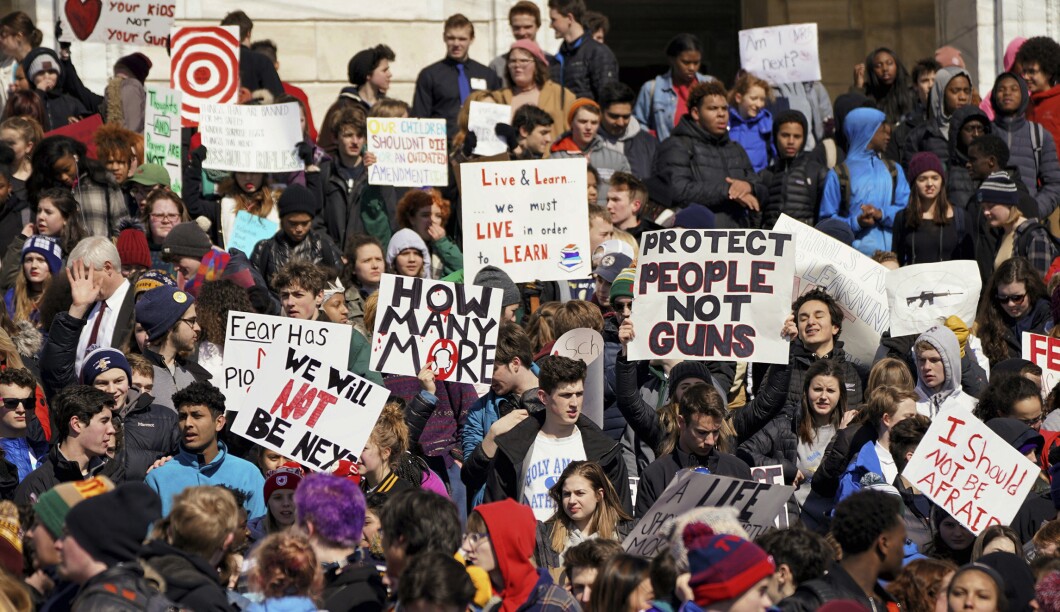
Minnesota is slated to become the next Democratic-led state to adopt gun control measures that activists say are crucial to respond to the threat of mass shootings and gun violence plaguing the nation.
The Public Safety and Judiciary Finance and Policy agreement passed early Tuesday by a vote of 69-63, just days after narrowly clearing the Senate 34-33 on Friday and will soon reach the desk of Gov. Tim Walz (D-IL), who has signaled his intent to sign the bill into law.
KAMALA HARRIS TAKES HER PLACE AT THE DEBT LIMIT NEGOTIATING TABLE

The package includes two gun regulations activists in the state have been advocating years: expanding background checks and imposing a “red flag” law to suspend access to gun purchases for people deemed to be a danger to themselves or others.
A criminal background check will be necessary for private gun transfers, not just purchases made with federally licensed firearms dealers. The red flag law would allow a family member or law enforcement officer to make a petition to withdraw access to a person’s guns.
Democrats champion the legislation as a way to reduce random acts of gun violence after at least 647 mass shootings were perpetrated by the end of 2022 and 690 in 2021.
“I’m going to be thinking of the mothers who lost children to gun violence and all of the moms fighting to protect their children from the uniquely American problem of gun violence, the leading cause of death for children and adolescents,” state Democratic Rep. Kelly Moller said.
But state Republican lawmakers say the bill represents a narrow-majority decision to dampen the Second Amendment rights of law-abiding gun owners through provisions such as requiring background checks for private sales.
“In a democracy, the majority rules, and that’s what has been proven to us this session. If a majority wants to take your bike, they can take it, or in this case, if they want to take your gas-powered car, they can take it,” state GOP Sen. Justin Eichorn said, adding he doesn’t expect rural sheriffs to enforce the red flag law.
The bill tacks on other provisions, such as an $880 million increase in funding for the court system, violence prevention measures, retention bonuses for law enforcement, and heightened penalties for fentanyl dealers.
Minnesota will join several other blue states that are moving to impose sweeping gun control regulations. Recently, new measures were signed into law in Colorado and Washington, while the GOP governor of Tennessee called for a special session in August following the Covenant school shooting.
Meanwhile, legal fights are underway in states such as Illinois over its recently enacted gun control laws that seek to ban semi-automatic rifles and large-capacity magazines. The Supreme Court declined to take up a legal challenge by gun owners against the assault-style weapons ban on Wednesday, as oral arguments will be heard over that dispute in the U.S. Court of Appeals for the 7th Circuit on June 29.
Gun advocates have clung to hopes that the Supreme Court’s ruling just last year, finding the Constitution protects a right to carry firearms in public for self-defense, would rectify their complaints against recently passed gun laws in Democratic-led states.
In April, Minnesota faced setbacks in implementing a law blocking 18- to-20-year-olds from obtaining permits to carry handguns in public after a judge cited the landmark high court ruling.
CLICK HERE TO READ MORE FROM THE WASHINGTON EXAMINER
“Commonly owned weapons are protected by the Second Amendment, and banning them has to stop,” Dudley Brown, president of the National Association for Gun Rights, told the Washington Examiner in a statement Wednesday.
“It will ultimately be decided by the Supreme Court, which will very soon be called upon to enforce their [New York State Rifle & Pistol Association, Inc. v.] Bruen precedent on a nation full of lower courts determined to ignore both Bruen and the Second Amendment,” Brown added.





